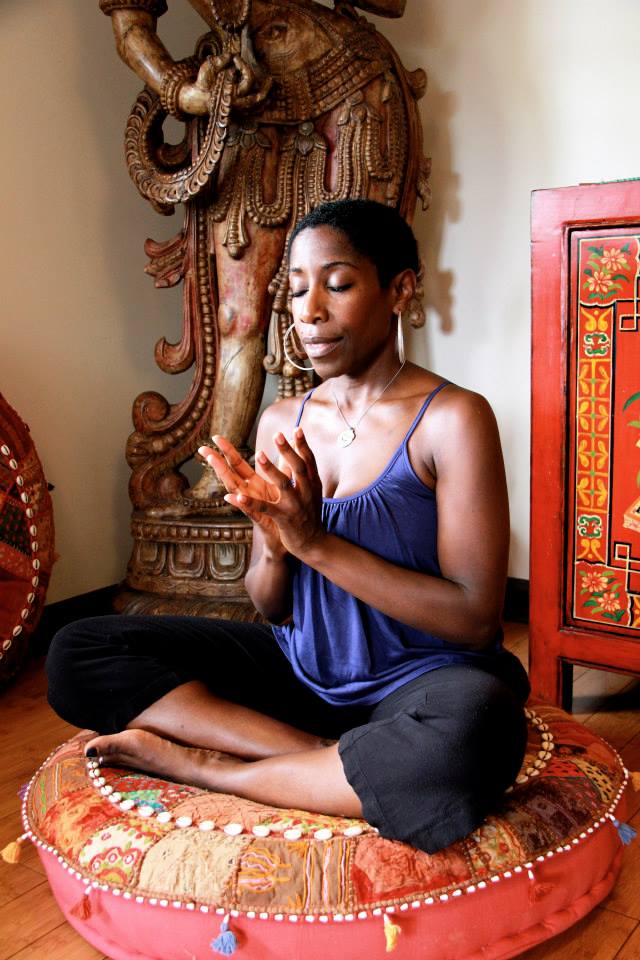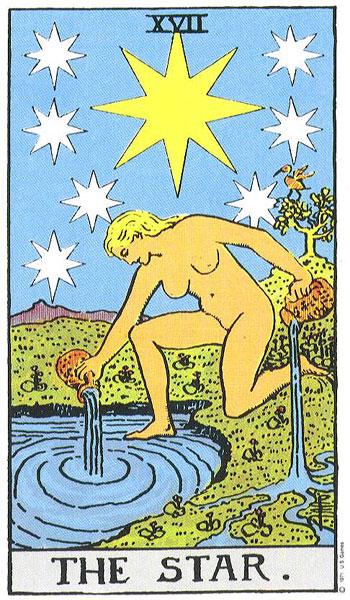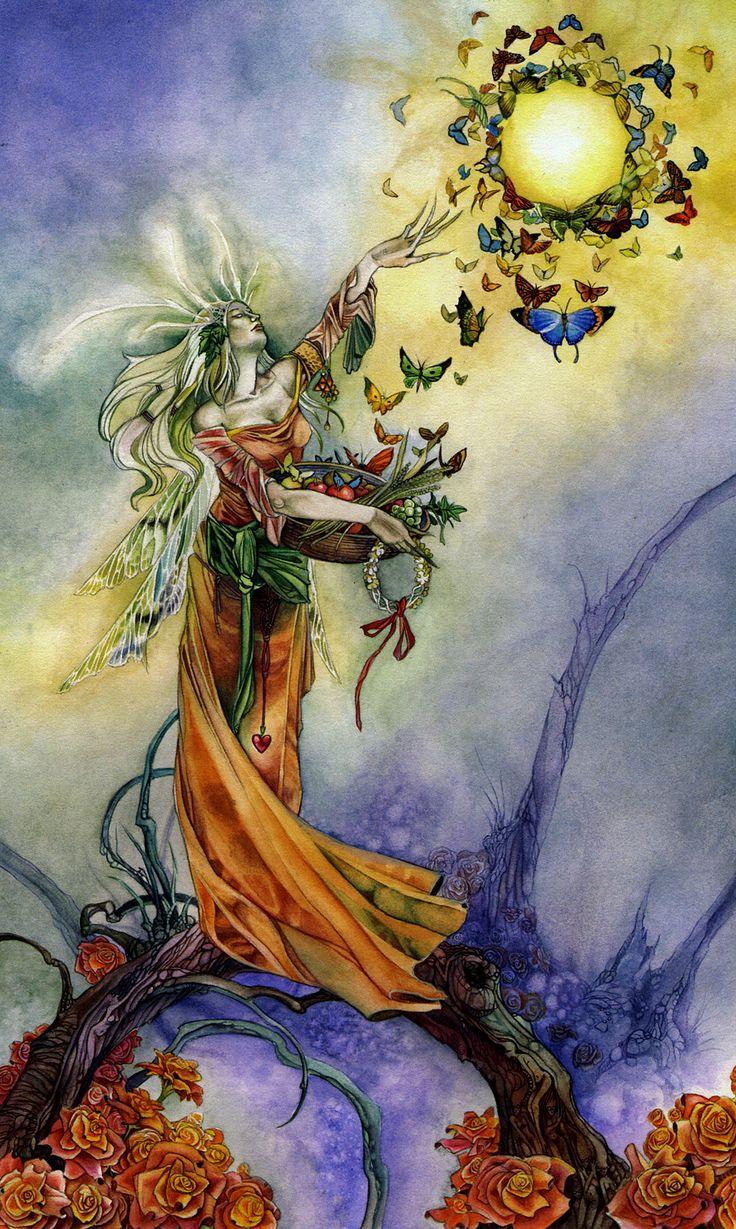HEALING THE SHADOW and THE MIRROR OF RELATIONSHIP by MATTHEWBLAIS
I. Healing, the Ego, and the Shadow: Many of us have realized that we are here to “do healing.” Healing means “making whole,” and it’s become common wisdom that the only REAL healing you can do is healing YOURSELF. That means that what we’re doing when we heal is “making ourselves whole,” which implies that we are currently in a fragmented or “separated” state. If you think of yourself as being fragmented or separated into two basic “halves,” one half is the “you that you know yourself to be” (your identity or self-concept), and the other is “your shadow” (everything you’re quite certain you AREN’T). For most of us it is very difficult to imagine that somehow we “are” everything we know we aren’t.
Our current, well-established belief of who we are naturally makes it difficult for us to imagine “being” something else at the same time, especially something as vague and ominous as “everything we aren’t.” To help clarify the discussion, we’ll distinguish your “self” (small ‘s’) as your conscious, everyday identity, your self-concept, who you think you are when you’re in a “normal” state of mind. We will call this your “ego.” We’ll use the term “Greater Self” (capital ‘S’) or “True Self” to refer to the “whole” or healed you that includes both your ego AND your shadow (everything your ego thinks you aren’t).
II. Recognizing your Shadow: Whatever else you say about emotions and feelings, you have to admit that you just “wouldn’t be your self” (little ‘s’) without your own, familiar feelings. That’s why we think we’re going crazy or becoming “possessed” when unfamiliar or “out of character” emotions or reactions show up in our lives. However, there is another, more positive way to look at these disturbing occurrences. Remember that anything that feels like it isn’t “you” must be a part of your shadow, and when parts of your shadow start to show up in your “self’s” experience, this is HEALING. This is because healing is “making whole,” and it is your shadow and your ego self that come together to make your whole/healed Greater Self. This also points out a very reliable way to recognize our shadow when it comes knocking: in “feeling” terms, our shadow is anything and everything that we reject, deny, disdain, fear, hate, recoil from, and just want it very much to go away and leave us alone. This is very important, because if you were raised like I was (on Earth, 20th century AD), you were very emphatically taught that you should never, ever play with your shadow. When we were little and had smaller vocabularies, our shadow was just called “bad.” Now that we’re grown up, we use words like “wrong,” “obnoxious,” and “evil.”
III. Relationship: the Magic Mirror: People who are very different from us tend to make us uncomfortable. For example, if you think you are a “nice” or “considerate” person, then it’s the loudest, nastiest, most obnoxious brute that you will feel most repelled by. Clearly, if our ego identifies with niceness and considerateness, then nastiness and obnoxiousness must be part of our shadow, where we can safely label it as “not us.” What feelings do you have when some obnoxious brute yells obscenities at you? Fear? Anger? Disdain? Do you very much want the whole situation to just go away and leave you alone? If you answered “yes” to any of these questions, Congratulations, you’ve just successfully recognized and distinguished a part of your shadow. The shadow part is whatever qualities and behaviors you perceived that provoked your uncomfortable reaction. This is why relationships are often referred to as “mirrors:” we tend to see in OTHER people all of the qualities and characteristics that comprise OUR OWN shadow; that is, everything that we think is “not us.” Relationships do not mirror our ego back to us; rather, they mirror back our shadow, the other, unacknowledged half of our Greater Self. You might think you’d prefer to have it the other way around, but remember that we’re here to do our own healing. The mirror of relationship, along with the guidance of our uncomfortable feelings, provides us with the ability to see and recognize our shadow, which is a necessary prelude to healing it. No, it isn’t comfortable, but if it was, it wouldn’t be part of your shadow. If you were told that this healing thing was going to be all fun and no work, then you should definitely go ask for a refund, right now!
IV. The Blame Game: We’re all familiar with blame: it’s that thing we never ask for, but are always giving away freely. If that sounds suspiciously like the way we’d “love” to relate to a certain different four-letter word, it’s not a coincidence. “Blame” is a handy word that covers all the different ways we react to our shadow: reject, deny, disdain, fear, hate, recoil from, etc. Essentially, blame is projection; it is your ego saying “Go away, I don’t like you, you’re not ME.” In other words, “Hello, shadow.” Blame usually accompanies uncomfortable feelings, as we strive to distance our “selves” from the source of our discomfort, which the ego perceives as external to us. Ready for a Deep Truth? The reason your shadow is uncomfortable to your ego is because your ego ONLY EXISTS AS an opposition to your shadow, and your ego knows that it cannot survive as a separate little self if the shadow is really recognized and re-membered. Blame serves to maintain and reinforce the separation between the ego and the shadow, and maintaining this separation is the ego’s only real purpose.
Think of a time when you were continuously blaming someone for something for days on end. If you’re like me, you’ll notice that there is a specific feeling or emotion involved: usually fear or anger. This other person probably did something that made you really angry, or something that hurt you deeply. If it’s anger, look a little further to find the hurt that’s hidden beneath it. You may feel like your blame is justified by their actions, or you may be all new-agey like me and think that blame is “never justified,” but there we are with our blame, just the same. Maybe this blaming feeling has been hanging around so long that you’re REALLY tired of it by now, and you’ve been chanting, and meditating on love and white light, and holding your breath, and doing everything you can THINK of to get RID of it, but it’s still here! What can we do in a situation like this? Let’s pause here for some introspection. First question: Are you beating yourself up for your role in this thing? Not living up to your New Millennium’s resolutions to be all love and light and sweetness? If so, please stop.
Now: Are you beating yourself up because you WERE beating yourself up (made a resolution not to beat yourself up, too)? Beating yourself up is BLAMING YOURSELF. Why would we do such a thing? We blame someone else when they exhibit part of our shadow. We do this because the shadow threatens our identity, and our ego needs to reinforce its sense of separateness from shadow; that’s its function. In like fashion, when WE exhibit a part of our own shadow, our ego naturally does the same thing to our self: blame our self and project that same hostility onto our self that we project onto others when we blame them. The ego is impartial when it comes to punishment, its favorite activity. Most of us have decided that BLAMING is really “not nice,” but unfortunately, it happens to be an indispensable tool of the ego in maintaining its separateness. So the next time we bump into a piece of our shadow out there, we find our ego blaming it, but since we’ve decided BLAMING isn’t nice (i.e. shadow), guess what? We just caught our self RED HANDED exhibiting shadow by BLAMING! And what do we do when we see shadow? Blame it! We get to blame ourselves for blaming! You can see where THAT goes in a hurry. It may seem like we’re just digging ourselves deeper and deeper into a pit here, but we’re actually about to discover that this pit doesn’t go down forever. We’re about to break through and discover inner space on the other side of all this dirt.
V. It Ain’t Just a River in Egypt: We all know what denial is, and we’re all experts at identifying it — in everyone except our self, that is. This is because denial ranks right up there with blame in the ego’s Arsenal of Self Perpetuation. The ego has to DENY that your shadow is part of you in any way. What makes this “denial,” is that your shadow IS in fact part of your Greater Self. When you become fully healed, your ego will be out of a job, since you won’t need to separate “self” from shadow any more, and your ego justifiably has a real fear of unemployment. It knows that you’re on the healing path, so it’s been working overtime to convince you of how indispensable it is. It’s been telling you how much you NEED it to PROTECT you from all that nasty, dangerous SHADOW lurking out there… Even though denial is difficult to see operating in our self, this is not a problem; our Magic Mirror of relationship and our Uncomfortable Feelings are going to help us ferret out all of our denial with ease.
VI. Review: Let’s recapitulate. We’re here to do our own healing, which means to become our whole Greater Self by recognizing and re-membering our shadow. To do this, we must be able to recognize our shadow, which is everything that feels like it’s not “us.” We can recognize our shadow by noticing what makes us feel uncomfortable, and by noticing when we are blaming (ourself or others). Anything that we blame and make wrong is part of our shadow. Our ego always maintains emphatic denial that any piece of our shadow is a part of us in any way (that’s its job). Therefore our shadow is always perceived to be “out there,” which is why we see it in other people. This is how others function as a “magic mirror” to reveal OUR shadow to us. If you have followed everything up to this point, you probably want to know what you can DO with all this information to help yourself along on your healing journey. Now that we’ve covered all the basics, we can get to the really interesting parts.
VII. Love and Blame: Most of us would like to have the relationship with love that we currently have with blame: we’d like to always be giving it freely and never asking for it, nor feeling like we “need” it. Love is what we feel when we recognize or remember ourselves truly, because love is our true essence. When we recognize ourselves in another person, we feel love for them. When we recognize and remember our True Self within ourselves, we feel love for ourselves. Blame works in the opposite way: we feel blame when we DENY that a part of our True Self (part of our shadow) is a part of us. This is true whether we deny it in our self (blaming our self) or in another person (blaming them). By this you can see that love and blame are mutually exclusive. If you are busy DENYING that something is a part of you (blaming), you can’t simultaneously be recognizing and remembering that it IS a part of you (loving).
VIII. Dancing with Shadows: Let’s look at a practical application of this understanding. Think of a situation where someone really hurt or angered you, and you felt trapped in blame. As much as you wanted to heal, forgive, or simply forget about the situation, you felt unable (or unwilling) to overcome that vindictive, righteous, blaming feeling, and move into a space of acceptance, forgiveness, understanding, compassion, peace, and love. This is a situation begging for healing. To enable healing, you DO need to want it, and you do need to be WILLING to give up your blame, fear, and anger in exchange for love, compassion, and understanding. It IS enough at this point just to be willing; it’s okay if you don’t feel CAPABLE, or understand HOW to release your blame, as long as you are open to being led, and willing to work with whatever presents itself. Remember that blame is your ego saying to a piece of your shadow, “You’re not me, go away, I don’t like you!” In this case, the piece of shadow in question is WHAT THE OTHER PERSON DID THAT HURT YOU. Let’s say, for example, that they said or did something to you that was spiteful, disrespectful, and abusive. Of course, you feel hurt and angered by this, and react with hostility and blame. The blame you feel IS your own denial that YOU CAN AND DID ACT THE SAME WAY toward others, and, more importantly toward yourself. Don’t read any further until you really understand what that means. That should be really hard for you to accept, or else it wouldn’t be denial. But that’s okay; you don’t need to accept it as “the truth” right now. It is sufficient for you to understand it and allow for it as a possibility, to make room for your understanding of it to grow. All you need to do is say “Wow, MAYBE all of this anger and resentment energy of mine is REALLY just trying to KEEP ME FROM REMEMBERING THAT PART OF MYSELF!” Can you feel your hostility PUSHING that shadow away from yourself, HOLDING it at a distance? Can you feel how it wants to push it completely out of your awareness, so you won’t even have to think about it at all? Remember, this is precisely what our ego exists for: to MAINTAIN that identity of self, that distinction, that boundary; to keep OUT our shadow. Blame is its main tool for keeping our shadow at a distance. Clearly, your ego does NOT share your goal of reunion with your Greater Self. It is, in fact, working determinedly AGAINST you on this journey. This is very important to bear in mind. Your ego will work very hard to make you forget. Again, all you need to do is recognize and acknowledge that it’s YOUR OWN SHADOW mirrored in the hurtful behavior of the other person, and reaffirm your desire to heal and to forgive. Remember that you are blaming the other person only because YOU are still in denial about WHO YOU ARE (because that piece of shadow really IS a part of you). The blame is your ego’s way of trying to prevent you from seeing this piece of your shadow as your own, as YOURSELF. Be clear about your desire to release all blame and reach a place of understanding and compassion, and acceptance. Intention and desire are supremely powerful. Notice that you probably have a lot of JUDGMENT about hurtful, abusive behavior in general. You may firmly believe that it’s bad and wrong, never justified, and that YOU would certainly never intend to treat anyone like that! Notice that this kind of judgment accomplishes the same purpose as blame: it maintains the barrier between the sense of self and the “not-self” (shadow). Preconceived judgments also allow our ego to feel justified and self-righteous in blaming.
IX. Exploring Inner Space: We spoke about seeking to remember, understand, and accept how you yourself have behaved in the very way that you are feeling hurt and angered by in the present. Be clear that you are not striving to BECOME hurtful or abusive, or to conceive of that kind of behavior as “good” or “okay.” Because it is part of your shadow, you ALREADY ARE it; the object is simply to realize HOW this is so. One way to do this is to allow yourself to explore your own hurtful and abusive thoughts and fantasies. Most of us are horrified by this idea, but by now you should suspect that being horrified or repulsed by something means your ego doesn’t want you to explore it. That’s all the encouragement you should need, since your ego exists to keep you separated. Exploring your own angry and abusive thoughts is very powerful and healing because it will lead you directly to the related parts of your shadow. However, you need to be willing to examine your inner world with the attitude of accepting whatever you find there, without blame or judgment. An accepting attitude is very important because what you are exploring REALLY IS YOU. That’s all you need to realize. When you can see your OWN anger and hatred and judgment within yourself, with the intention of acceptance and healing, you are re-membering that part of your Self that you have denied and separated from you. When this process is completed, you will no longer need to project those “negative” emotions onto others. Then when others are angry, you will still be able to accept and understand them, because you have accepted and understood of that part of yourself. You can extend compassion and understanding to another only for those things for which you have compassion and understanding in yourself. Around all else there will be denial and blame.
X. Trading Places: In the previous example (“Dancing with Shadows”), we looked at a situation where you felt hurt by someone else’s behavior. You used that situation as an opportunity to see where your own denial lay, and what part of your shadow it revealed. Now let’s turn the tables, but with a twist, and assume that another person is hurt and angry at YOU for some behavior of yours. Let’s say you didn’t consciously intend anything malicious; perhaps you were just misinterpreted. You’re completely baffled by their overreaction. To you it seems clear that they are being oversensitive, taking things extremely personally, and not taking responsibility for their own feelings. They’re obviously blaming YOU for something. In a situation like this, it’s tempting to just shrug the whole thing off and let the other person “deal with their own stuff.” That may even be appropriate sometimes. However, remember that our goal is to be doing our own healing, and to be using our relationships as mirrors to help us see where that healing can happen. In this situation you may not feel that you are blaming the person for anything at all, and in fact, you may not be. But there is still something very important to see here: for some reason, you are not extending compassion and understanding to the other person. You feel justified and content in letting them deal with their own issues, in which, perhaps, they seem to want to involve you. Notice how you react to that: probably you either feel that it is justifiable and appropriate, or you feel ashamed and guilty for not being “more loving.” The former is judging and defending yourself (“I am right”), and the latter is judging and blaming yourself (“I am wrong”). The important thing to notice is that these are both self-judgment, the action of the ego in its eternal quest to keep away the shadow. Here we have discovered the ego operating without the familiar blame. What substitutes for blame here is a feeling of comfortable self-justification, along with ANOTHER PERSON’S blame toward us. You can safely assume that in a situation like this, there is indeed a golden opportunity to do some important healing of your own. Going back to our example, let’s assume that it’s not all just a simple misunderstanding, but that the other person really feels hurt by something you actually said or did, even though it seems harmless to you. Let’s say you hear the other person out, and they tell you what upset them, but you feel resistant to apologizing, or to extending compassion and understanding. You still feel that their reaction was inappropriate or invalid, that they have “imagined” being hurt. This is why you resist apologizing SINCERELY. You probably feel very cool, rational and detached. You still feel threatened by their blame. These are all good signs that you have your OWN healing to do here. In this situation, what you are denying is THAT YOU HAVE HURT ANOTHER PERSON. You keep telling yourself that it didn’t really have anything to do with you, it was all their imagination and hypersensitivity, etc. However, the simple fact that you ARE IN this situation should be all you need to see to accept that you DO have some learning to do here. Let’s pick a specific example of how the person might have felt hurt by you. Let’s say that they feel hurt because you have been “distant,” or “unavailable,” and they have felt rejected or abandoned by you. Some of us are very in touch with how we can feel hurt when another person is inaccessible us, but there are also many of us who do not understand it. Let’s say we believe that it is always our right and even our responsibility to give ourselves the space we need, to remove ourselves from others at times (physically, mentally, or emotionally) in order to stay centered and healthy. Whether or not this is true is irrelevant here. We are only concerned with identifying our own denial in the situation. If we truly believe that we sometimes need to “take space” by removing ourselves emotionally from others, then of course we feel justified when we do so. When someone comes to us and tells us that this behavior of ours has hurt them, we feel like we are being asked to give up our right to take space. This can be like someone asking us to please stop breathing, a very threatening request indeed!
XI. The Biggest Shadow of “All”: What there is to see here is that a person can feel hurt by us even when we have no intention or desire to hurt them, even when we are only doing what we truly must do. In other words, we are powerless to prevent others from feeling hurt. This can be very difficult to accept, because it means that WE CAN FEEL HURT BY OTHERS EVEN WHEN THEY HAVE NO INTENTION OR DESIRE TO HURT US. The ego does NOT want to believe this, because it means we might have created our own suffering! One of the ego’s basic premises is that of victimhood, and a victim MUST have someone to BLAME. The victim’s premise is powerlessness, and the “power” to hurt oneself must be projected onto someone or something else: the SHADOW. So, to acknowledge that another person might have created their own suffering, we must be first able to acknowledge that WE might have created OUR own suffering. Which, in fact, we have; which brings us back to our own DENIAL, and our own shadow. Think of your ego as being a victim, feeling essentially powerless, and always pointing the finger and saying “He did it!” What is being denied here is YOUR POWER; your power to create your own experience, including your own suffering. Remember, however, that we CAN AND DO create our own suffering, even when others have no desire at all for us to suffer. Of course, we create ALL of our own suffering, including when others DO desire for us to suffer! This idea is anathema to the ego (which means we’re making great progress), because it invalidates the whole system of BLAME by which the ego maintains its separation. Let’s go back to the shadowy part of this. When your ego is telling you that you don’t create your own suffering, it is DENYING your power to create your own experience. Whatever is being denied is the shadow. Therefore, in this case, your shadow is your power to create your own experience! Wouldn’t you like to reintegrate THAT part of your Greater Self? If so, you would want to explore how you have created your own suffering (yes, all of it), and how you have created ALL of your experiences. If you start taking responsibility for having created all of your experiences, you are dismantling the system of blame that the ego uses to keep its boundaries stable. Remember that blame and love are mutually exclusive. Therefore, you are also dismantling the system that prevents love from being more a part of your experience.
XII. The Unending: At this point in the journey, you need to follow your own guidance. If you do not feel like you have guidance that will take you into these areas, remember that it is not a question of HAVING guidance, but of RECOGNIZING it, and trusting it. We all have all the guidance we will ever need, just waiting for us to recognize and follow it. If you desire more guidance, ask for it, and be clear about your intention to continue on your healing path. There are also numerous books and organizations to help you on this path (See Spiritual Coaching with Crystal Lynn Bell.) Welcome to the beginning of the rest of you!
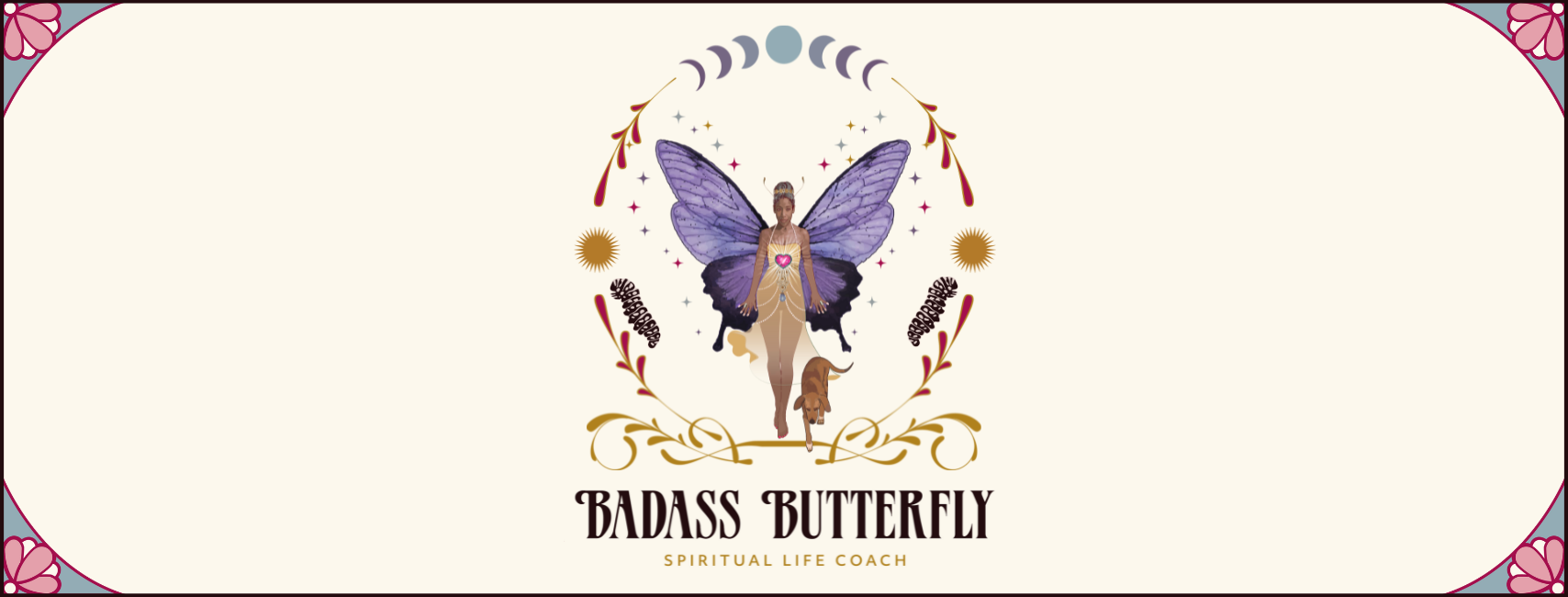
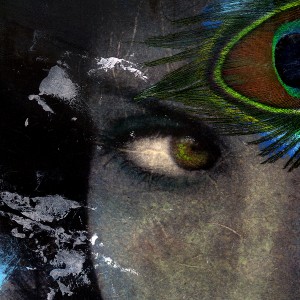




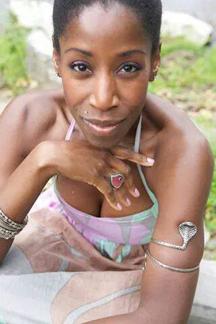 Hi there! My name is Crystal Lynn Bell and I am a Spiritual Empowerment Coach. I'm currently living in Paris, doing my coaching, writing my book, and studying French language and culture at the Sorbonne. I love Paris and I'm excited to be hosting a retreat here this winter called
Hi there! My name is Crystal Lynn Bell and I am a Spiritual Empowerment Coach. I'm currently living in Paris, doing my coaching, writing my book, and studying French language and culture at the Sorbonne. I love Paris and I'm excited to be hosting a retreat here this winter called 
